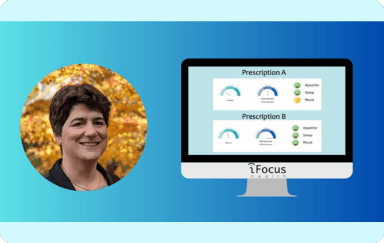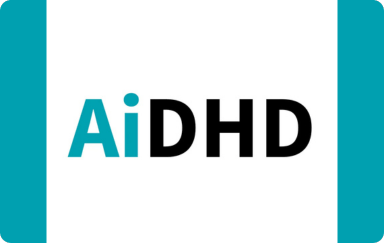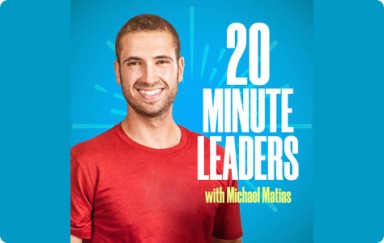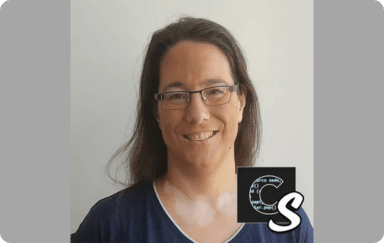Resources
- Home
- /
- Resources
Publications
Currently, assessing ADHD treatment response to stimulants relies on rating scales and subjective questionnaires and sometimes a CPT. Such tools fall short of objective, quantifiable measurement of effect, especially in natural settings and can result in inconsistent treatment.
Articles
A recent study in the Journal of Attention Disorders details the development of a novel method to objectively measure the effects of stimulant medication on individuals with Attention-Deficit/Hyperactivity Disorder (ADHD) through the innovative use of eye-tracking technology. This new approach, dubbed the iFocus method, offers a promising tool for evaluating the efficacy of ADHD treatments in real-world settings, providing a significant leap towards personalized medicine in the management of ADHD.
Benjamin and Sarah Cheyette, M.D. are discussing exciting new developments that could help track symptom severity
This latest conversation is with Adi Diner, Co-Founder and CEO of iFocus Health, a company that collects data to measure ADHD treatment efficacy.
Are you interested in learning about the fascinating connection between the aesthetic and mental health markets? Discover the secrets to success from the multi-billion dollar aesthetic industry and unveil the “White Coat Effect” in healthcare marketing. Gain exclusive insights from our advisor Yulie Klerman on our go-to-market strategy. Click now to learn more and stay ahead of the curve in the digital health industry!
Like any new technology, AI is not good or bad. In some aspects, it is uniquely qualified to solve some issues related to ADHD. In others, it has risks that will affect people with ADHD more than Neurotypicals.
In the past week, I have had multiple discussions regarding the disturbing news around Cerebral and its alleged practice of overprescribing ADHD medication.
It is concerning that Cerebral, a leader in telehealth for mental health, is facing such grave accusations.
If you have not been following, these are the highlights
Cerebral is a mental health telemedicine company that offers online care and medication management for anxiety, depression, ADHD, etc.
They claim to be the fastest mental health company ever to achieve unicorn status. They have raised over $462 million and achieved a valuation of $4.8 billion in under two years.
Since March, there have been some reports of providers feeling pressured to prescribe stimulants.
In April, a former Cerebral exec sued the startup, alleging that it prescribed stimulants to retain patients.
It is too easy to say Cerebral=BAD and end the discussion.
Podcasts
Adi Diner is the CEO and co-founder of iFocus, she is a physicist (Ph.D.) with extensive experience in product development in the biotech and medical device industries.1 in 10 children and adults have ADHD, today- the treatment relies only on subjective feedback- “do you feel it is working” as a result, many do not get treated properly. iFocus will change the way ADHD is treated by providing objective treatment efficacy measures.
In this episode I catch up with Adi Diner, CEO and co-founder of iFocus Health. Adi gives us an update on the groundbreaking tool she’s been working on. Tune in to see how you can use this free tool to check whether your medicine’s working all while helping the iFocus team improve upon their tool!
Einat Sitbon has always been intrigued by nature, and all of its parts. She studied biology in school, all the way through getting her PhD in Computational Biology. This field also introduced her to computation in general, and programming. Outside of tech, she is married with 2 kids, and loves to hike. Her and her family share a love of fiction and fantasy books, and made mention her love of NK Jemision and JRR Tolkien.
Einat’s and her sister are very close, and at one point, her sister mentioned that her son was ADHD. They found it difficult to understand how there wasn’t a tool to help measure the concentration of a person with this diagnosis. They both started digging into how to solve this problem.
This is the creation story of iFocus Health.
In this episode, I’m excited to be joined by one of the first members of a support group I use to run.
Adi Diner was diagnosed with ADHD as an adult when she was studying for her Ph.D. Following her son’s diagnosis three years ago, Adi started to explore new tools to help children and adults with ADHD.
She launched iFocus, an AI-powered digital health device that can determine if a person’s ADHD treatment is working.
Check out our conversation to find out more about how it works.
iFocus is a program that uses eye-tracking technology and a proprietary artificial-intelligence algorithm to enable doctors to create the ultimate treatment plans for their patients. Adi Diner, CEO and co-founder of iFocus, realized when her son was diagnosed with ADHD that there was no way to measure how well his treatments were working. So, in typical ADHD style, she invented something that could! Learn more about iFocus at iFocusTest.com. If you have a question or comment you’d like Dr. Hallowell to address in an episode reach out to us! Write an email or record a voice memo and send it to connect@distractionpodcast.com. Learn more about the programs being offered this summer at Landmark College! There’s a summer program for high school students, a summer bridge experience, and a college readiness program. Go HERE to learn more. Landmark College in Putney, Vermont is the college of choice for students who learn differently. Learn more about our sponsor OmegaBrite Wellness, creators of the #1 Omega-3 supplements for the past twenty years. Ned and his wife, Sue, take them every day. Distraction listeners will SAVE 20% on their first order with the code: Distraction at OmegaBriteWellness.com. Distraction is created by Sounds Great Media. Our recording engineer/editor is Scott Persson and our producer is Sarah Guertin.
Today, we’re happy to have Dr. Adi Diner on the show. Adi is a physicist who co-founded iFocus Health, a company that aims to help ADHD patients track their ADHD. Adi thought of doing this as she and her kid are persons diagnosed with ADHD themselves, and they have no way of knowing which medications work or not. With this pain point, Adi started iFocus. Instead of coming up with an expensive instrument, Adi and her team use only a webcam and a Chrome extension to do eye tracking to the person diagnosed with ADHD. The data then gets recorded and becomes a becomes available for doctor’s interpretation. Ultimately, iFocus helps tell if the patient is getting better or not. Adi worked with hundreds of persons from different fields to make her vision happen. She worked with clinicians, ADHD patients and parents, administrators, a data scientist (her sister), and many others. She did all the necessary tests to her friends and their kids with ADHD and got astounding results. With iFocus, Adi dreams that people with ADHD would get the same care that people with other
medical conditions get. Luckily, Adi has been getting a lot of support from advisors and people in the community. As Adi and her team in iFocus get ready for more to come, she left some words for others who would like also follow their passion and do something meaningful: you need to be resilient. Making mistakes is inevitable, so get ready. In the end, no one has it easy, so be ready to get comfortable outside your comfort zone. Today’s Guest Adi has a Ph.D. in Physics from the Weizmann Institute of Science. Over the past 20 years, Adi has been leading the development of lasers, biotech, and medical devices. Adi’s expertise is finding original practical solutions for complex nearly impossible problems. A mother to a kid with ADHD and an ADHDier, Adi applies her passion for learning and out-of-the-box thinking to find ways to improve the treatment for individuals with ADHD.
Website
Facebook: @iFocusADHD
LinkedIn : in/ifocus-test
You’ll Learn:
Having the courage to get out of your comfort zone
Turning your pain point into something purposeful
Recognizing your limitations and asking for help when needed
Adi Diner is the founder of iFocus Health. iFocus is using eye-tracking technology combined with a proprietary AI algorithm to provide data-based treatment efficacy measures.
Adi Diner is the CEO and co-founder of iFocus, she is a physicist (Ph.D.) with extensive experience in product development in the biotech and medical device industries. 1 in 10 children and adults have ADHD, today- the treatment relies only on subjective feedback- “do you feel it is working” as a result, many do not get treated properly. iFocus will change the way ADHD is treated by providing objective treatment efficacy measures.
Adi Diner is the CEO and co-founder of iFocus, she is a physicist (Ph.D.) with extensive experience in product development in the biotech and medical device industries. 1 in 10 children and adults have ADHD, today- the treatment relies only on subjective feedback- “do you feel it is working” as a result, many do not get treated properly. iFocus will change the way ADHD is treated by providing objective treatment efficacy measures.












